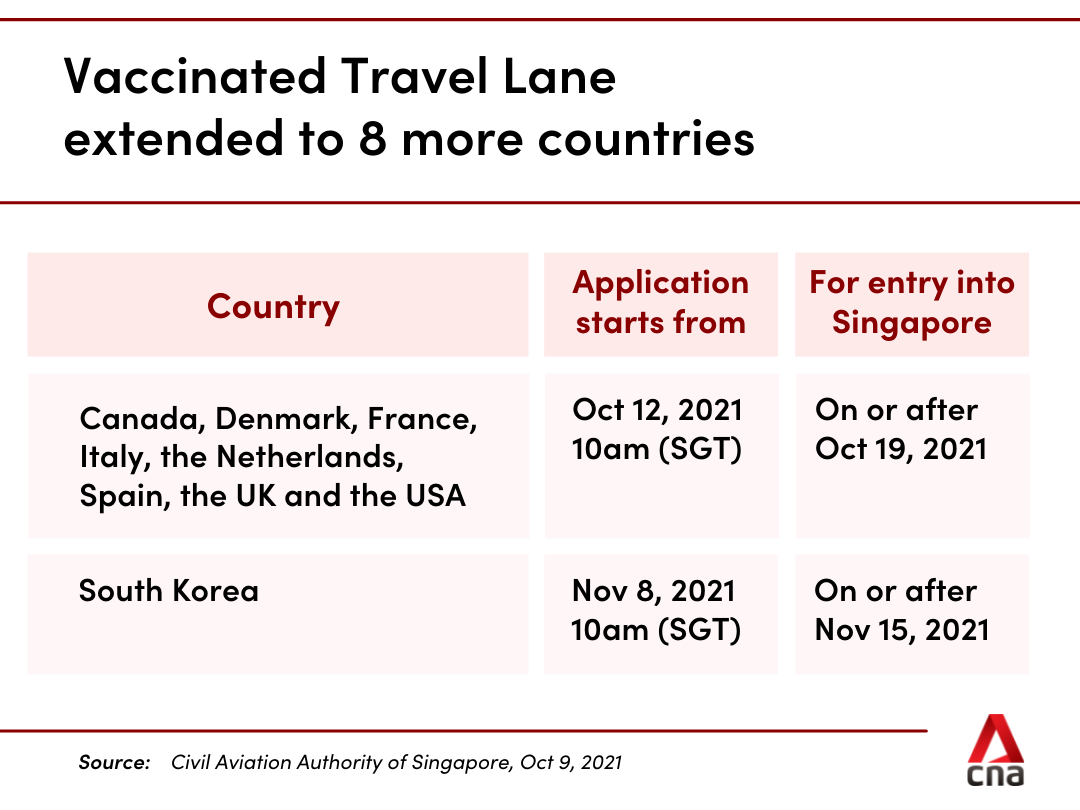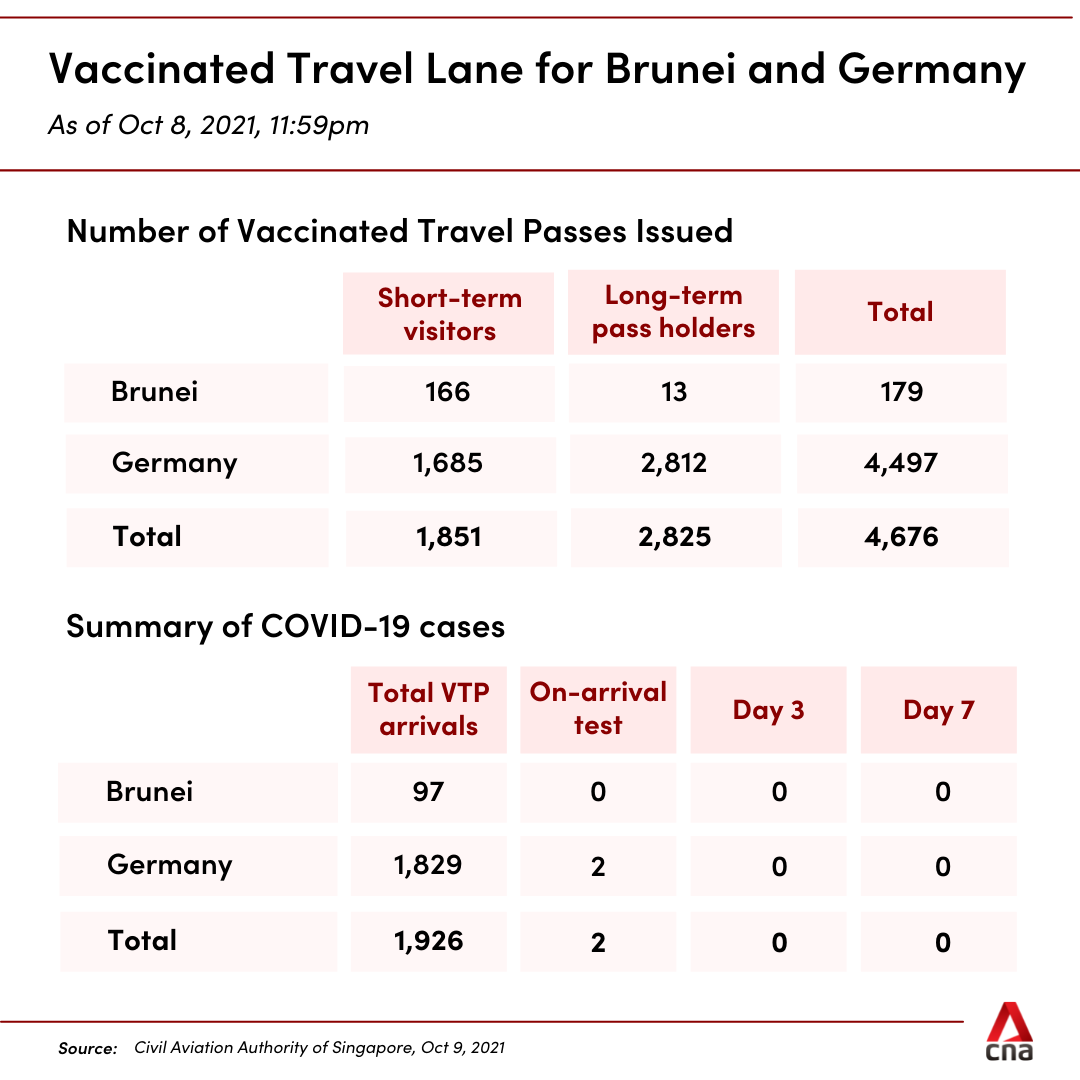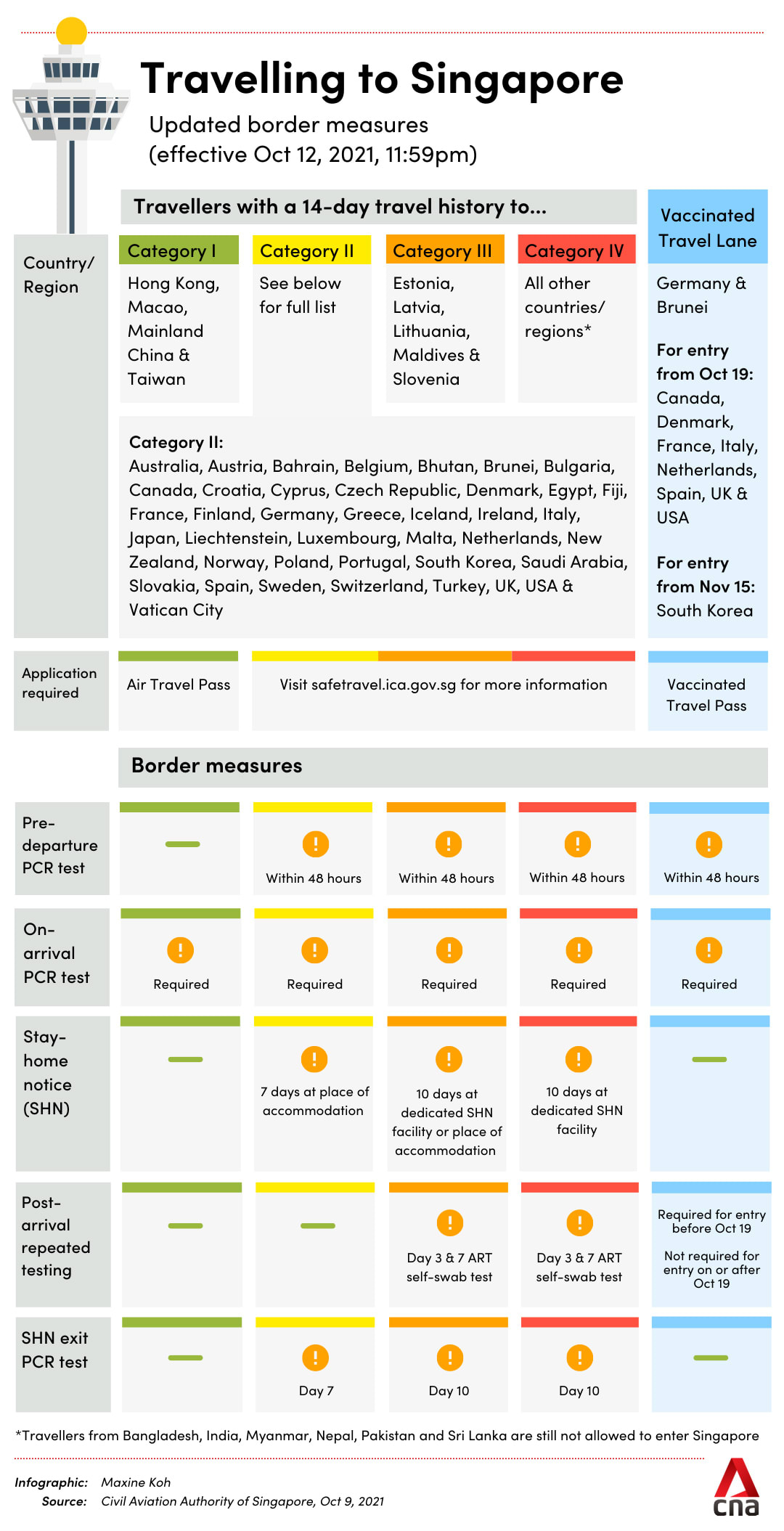SINGAPORE- Singapore is extending its vaccinated travel lane scheme to eight more countries, allowing those who are fully vaccinated against COVID-19 to enter Singapore without having to serve quarantine.
From Oct 19, fully vaccinated travellers from Canada, Denmark, France, Italy, the Netherlands, Spain, the United Kingdom and the United States will be able to enter Singapore under this arrangement, the Civil Aviation Authority of Singapore (CAAS) announced on Saturday (Oct 9).
This expansion is being conducted in a “cautious and step-by-step manner” to help “reclaim and rebuild” Singapore’s status as an international aviation hub with global connectivity, said CAAS.
The latest announcement comes after the “experience and confidence gained” from the first two vaccinated travel lanes with Brunei and Germany, which were launched last month, it added.
It also comes a day after Singapore announced another vaccinated travel lane with South Korea.
Speaking during a press conference on Saturday, Transport Minister S Iswaran said the vaccinated travel lanes would restore “two-way quarantine-free travel” between Singapore and the eight newly announced countries.
He added that the airlines and Changi Airport, together with various government agencies, had gained “valuable experience” through the implementation of the two existing vaccinated travel lanes over the past month.
According to CAAS, 179 vaccinated travel passes have been issued to travellers from Brunei and 4,497 from Germany for travel to Singapore between Sep 8 and Nov 12 this year, with 1,926 people on such passes from both countries entering the country as of Friday.
There were only two COVID-19 cases among these travellers, both of which were detected through the polymerase chain reaction (PCR) tests they took upon arrival at Changi Airport.
Up to 3,000 travellers will initially be allowed to enter Singapore daily from all 11 vaccinated travel lane countries, said Mr Iswaran.
“We will monitor the incidence rate, observe the demand, before deciding on any further increases in capacity.”
According to CAAS, 179 vaccinated travel passes have been issued to travellers from Brunei and 4,497 from Germany for travel to Singapore between Sep 8 and Nov 12 this year, with 1,926 people on such passes from both countries entering the country as of Friday.
There were only two COVID-19 cases among these travellers, both of which were detected through the polymerase chain reaction (PCR) tests they took upon arrival at Changi Airport.
Up to 3,000 travellers will initially be allowed to enter Singapore daily from all 11 vaccinated travel lane countries, said Mr Iswaran.
“We will monitor the incidence rate, observe the demand, before deciding on any further increases in capacity.”



